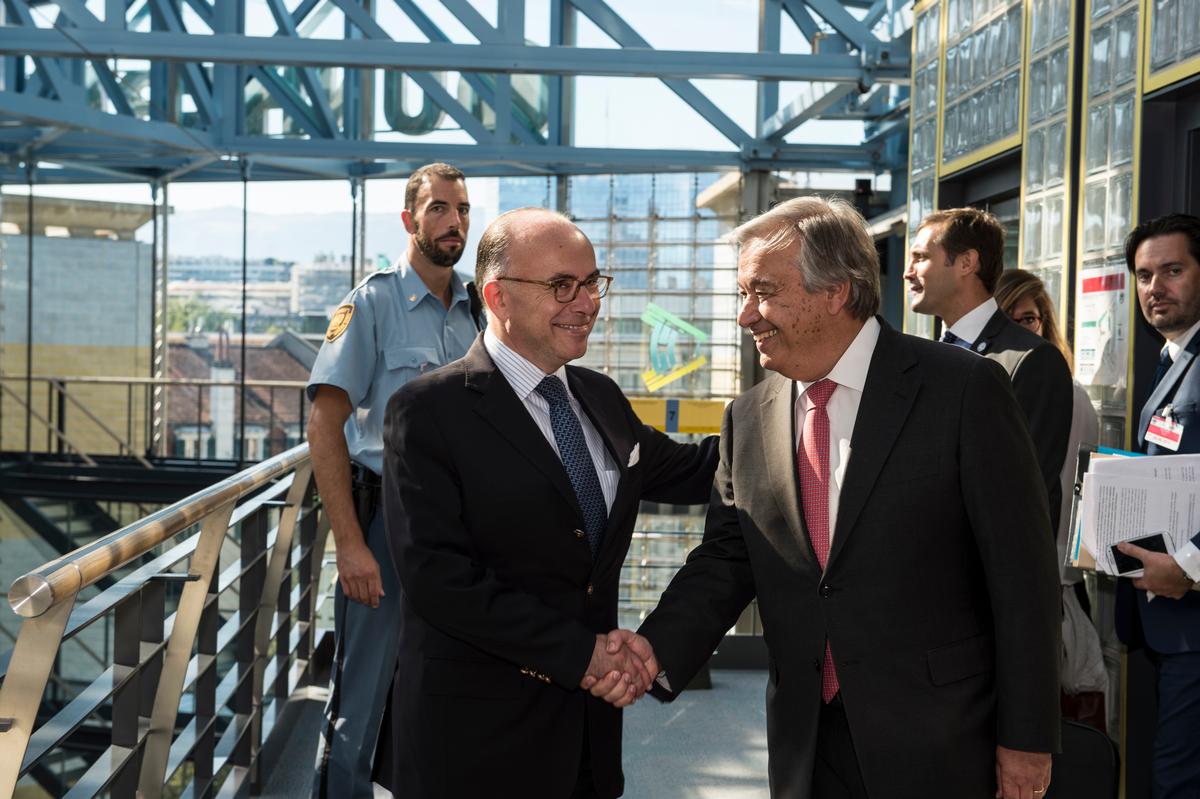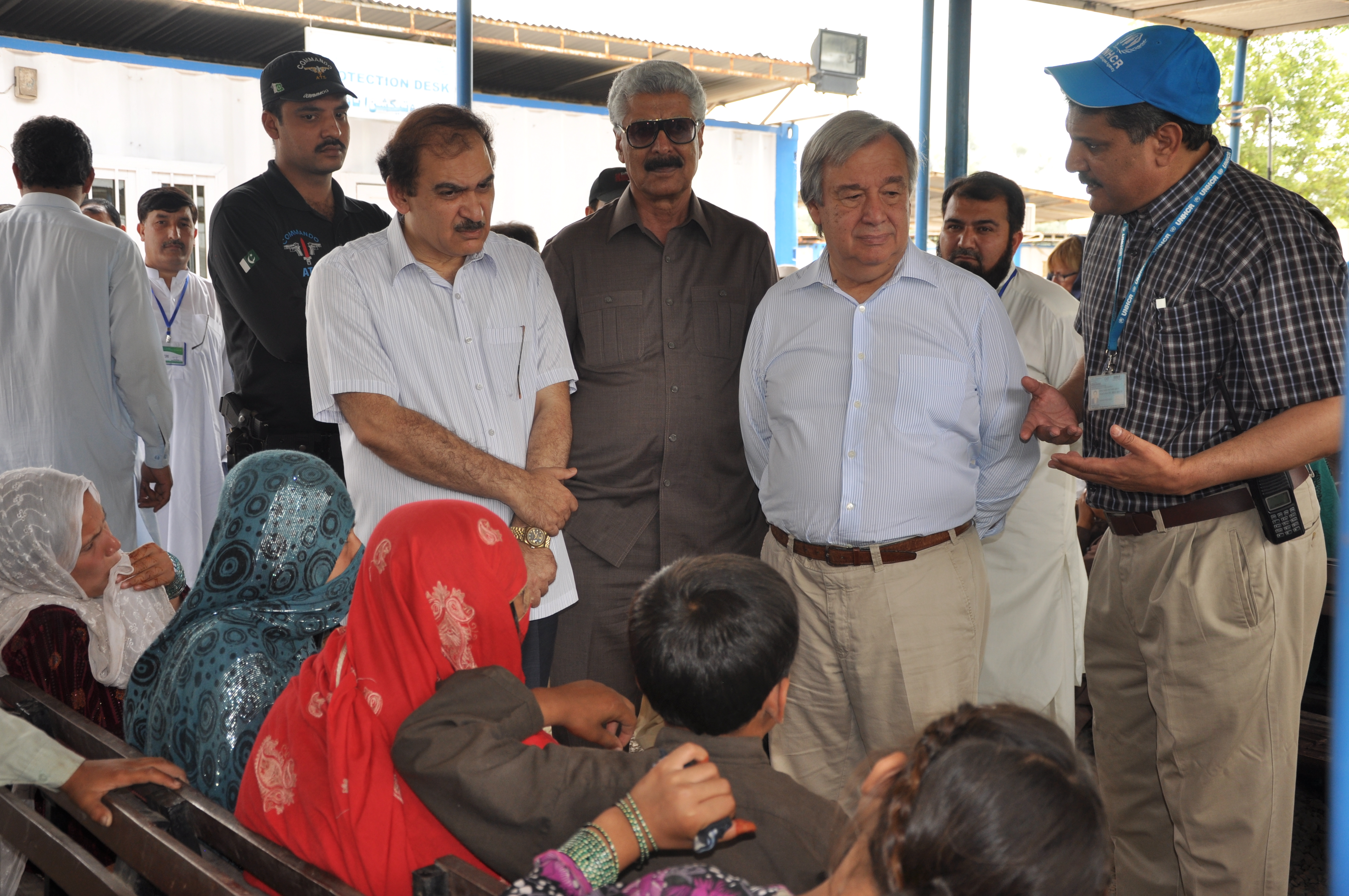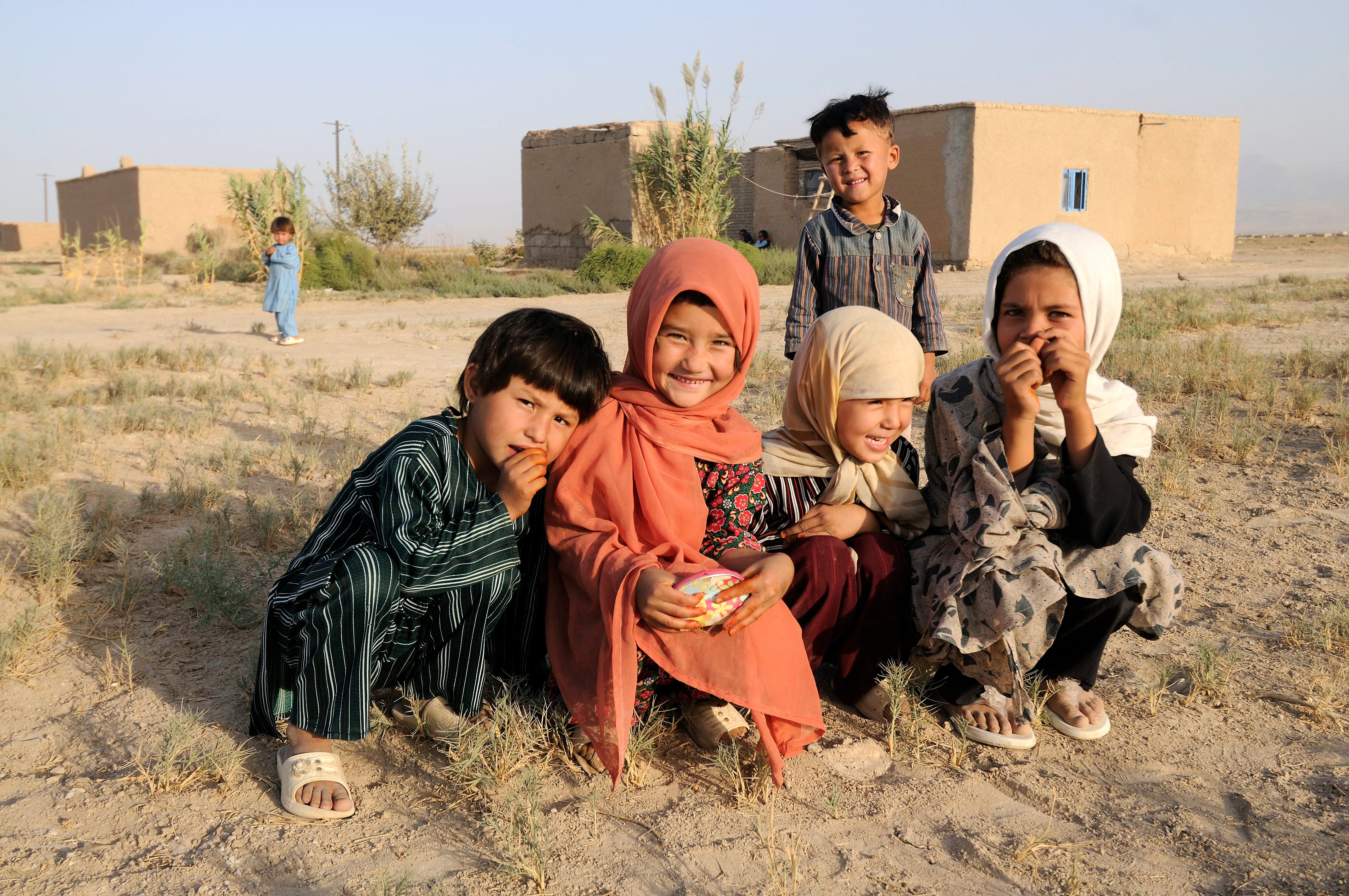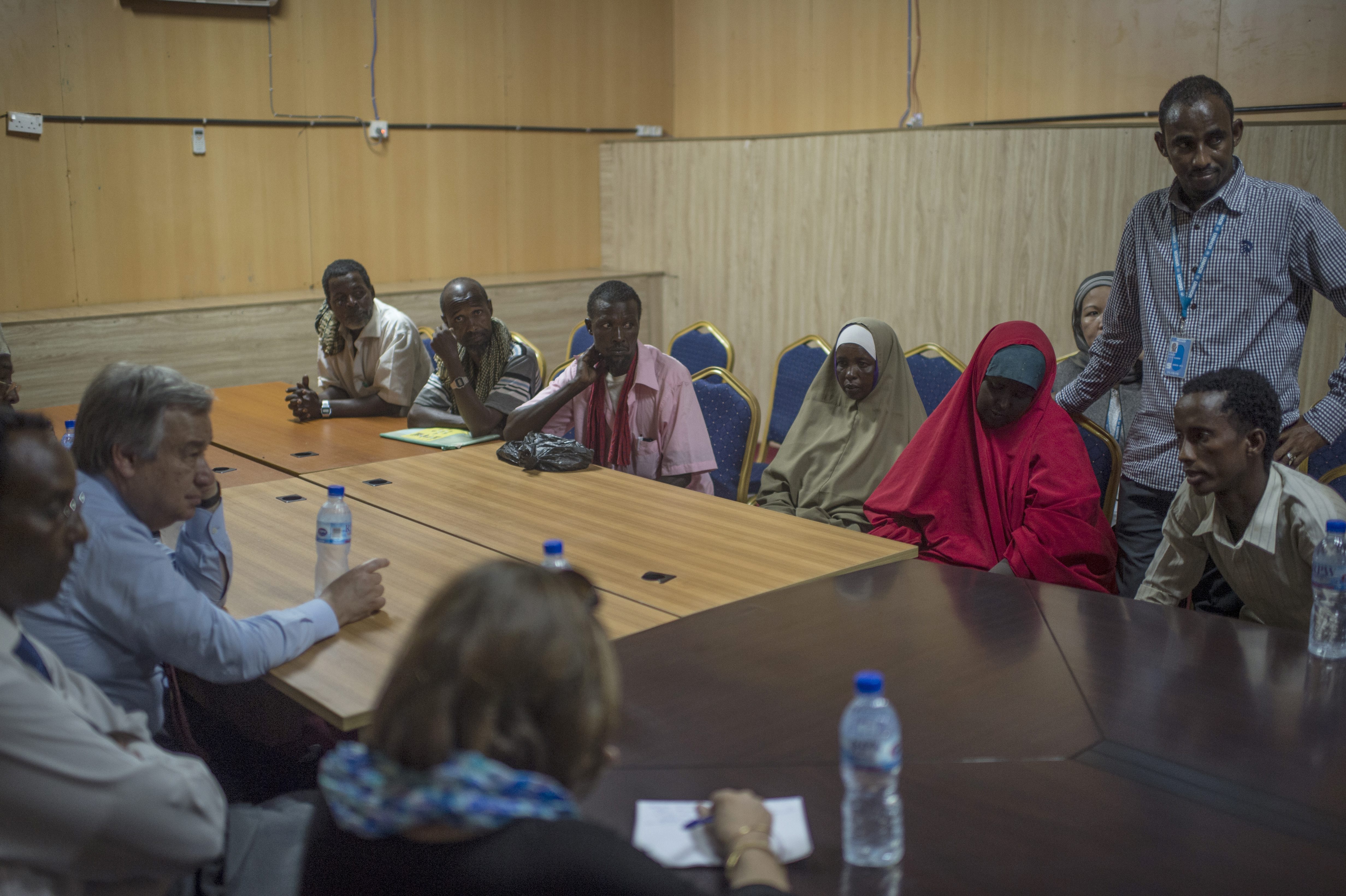"No one will force you to return," Guterres tells displaced Darfurians
"No one will force you to return," Guterres tells displaced Darfurians

RIYAD CAMP, Sudan, August 24 (UNHCR) - UN refugee agency chief António Guterres today told displaced Darfurians they would never be forced to go back to the villages they fled under armed attack over the last two years.
"Nobody will force you to return," he assured the leaders of displaced people who told him rape and burning of villages are still continuing in Darfur, the western region of Sudan that attracted international concern last year, but has since slipped from the world's front pages.
The Sudanese government is putting pressure on some sheikhs - village leaders - to take their people back to villages destroyed by armed militia.
"The UN is independent from the government," Guterres added, "so nobody can force you to return. That's why the troops of the African Union are here," he told displaced people in a Darfur camp on the second day of his visit to Sudan. He is on a 10-day visit to the region to highlight the financial needs of UNHCR and other international agencies serving Sudanese refugees and displaced people, and to try to promote an end to the Darfur conflict.
"The main job of the UN here is to try to force things in order to have peace," he said, referring to the stalled Abuja peace talks between the Sudanese government and the two Darfur rebel movements.
Next week he will travel to southern Sudan to see preparations being made for the return of half a million refugees after the signing of a peace deal for that region in January.
"The same that happened in the south, we want to happen in Darfur - peace, disarmament and the possibility for displaced people to choose whether to return to their homes," he said.
Remarking that he is a happy man because he has a house, a home and a family, Guterres said he wants the same for the 2 million people who have been forced out of their homes in Darfur. He said the UN refugee agency is helping people re-establish their lives in 10 Darfur villages that are deemed safe, but he ruled out any possibility of a large-scale return to villages right now.
The High Commissioner listened intently as displaced people told him of their need for security above all, even before food, which they also desperately need.
"There is still rape going on. Genocide is still going on and burning of villages is going on," the chief leader of the displaced people in Riyad camp told him. "We have no security in this camp. Our situation is not living. It is as if we are in prison."
Displaced women told him they face murder or rape if they venture outside the confines of the camp to search for firewood.
The sheikh of sheikhs representing all 10,000 people in Riyad camp disputed the Sudanese government's version of the Darfur conflict as either a tribal battle or a struggle between nomads (herders) and farmers.
"Herders do not have weapons," said the sheikh. "The people who attacked us had cars with weapons and Antonovs (airplanes from which they drop bombs). The government armed people and they are the ones who attacked us. Up to now we do not feel comfortable."
Guterres said UNHCR has worked with the African Union to increase peacekeeping patrols and to create a civilian police post inside the camp.
"We need them to make sure the Sudanese police abide by the rules, respect and protect people and do not attack the people. With their post in the camp, they will be able to see what the government does," he said.

The High Commissioner also visited one of the 30 women's centres UNHCR has set up in camps for displaced people, places where women can learn craft and get counselling for the traumas they have suffered.
On Thursday and Friday, Guterres will be in Chad, where the UN refugee agency takes care of more than 200,000 refugees from Darfur.
By Kitty McKinsey in El Geneina, Sudan






